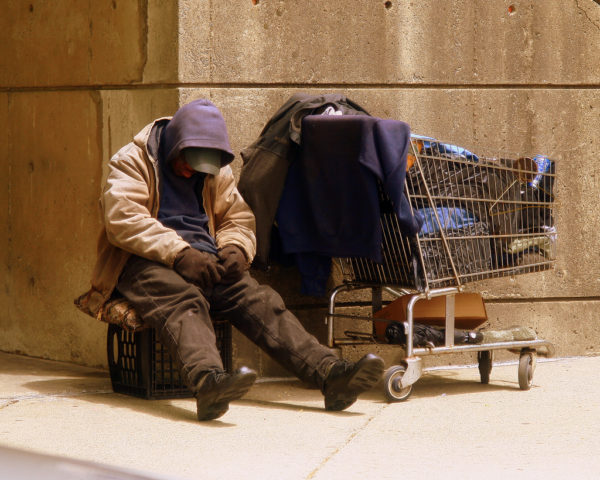The Channeling Erik YouTube channel has officially hit over 20,000 subscribers. If you haven’t, please subscribe so you can get every video when it’s posted! All you have to do is click HERE, then click subscribe.
Check out this video of Lukas, Kristina and Erik when Rune’s family came over for a visit.
There’s another video that Michelle has on Facebook of Arleen taking her first steps as Erik watched on and clapped. It doesn’t give me an option to download or get an embed code, but I wish I could share it. She doesn’t have the original anymore.
No worries. Enjoy Part One of our series about homelessness.
Me: So, Erik, I want to talk about homeless people. I’m always concerned. I don’t know whether to help them or if that’s enabling them. First of all, why do people get in that situation? I know there’s probably just as many reasons as there are people out there, but…
Kim (laughing): Man, he’s being a rotten booger today. He’s picking on me!
Me: Uh oh. Picking on you while you’re down, man, that’s terrible—while she’s sick!
Kim: I know! One of my favorite country singers actually chose to be homeless. So, yeah, he packed up and moved to Hawaii with nothing and lived on the beach with nothing.
Me: After he was famous?
Kim: During his writing process before he really hit it big. And Erik’s messing with me going, “Let’s talk about your crush, your homeless crush.”
Kim giggles.
Me: What’s his name?
Kim: Well, he’s not homeless anymore. Kip Moore.
Me: Oh, that’s right! You’ve talked about him before. I’ll have to check him out!
Kim: Yeah, his story is very spiritual. So anyhow, they lived on the beach. Pretty cool story.
Me: Wow.
Kim: Erik, let’s talk about the homeless. He gets really soft and very sincere when approaching this topic.
Erik: There are a few ways to look at this. There are people who come in and it’s a part of their contract. It’s their intent to live this way and experience this whether it’s throughout most of their incarnation or just for a brief period. Homelessness, in itself, brings up a whole new perspective. Let’s start with the ones who choose this experience coming in. Sometimes, based on free will, it’s completely unexpected and temporary, but the ones that—
Kim: He keeps showing me images of the lady who lives in front of the White House. He wants to use her as an example.
Me: Oh, okay.
Erik: A part of the process for these folks is—
Kim: Oh, this is kind of hard to say.
Erik: They think they’re proving a point, especially her, to the public or society, but what’s really happening is she’s doing this to teach herself. She’s trying to prove a point to herself. In goes back to that self-acceptance thing I was talking about earlier.
Kim (looking uncomfortable): I don’t want to pick on her because I don’t know her!
Me: It’s okay. She probably doesn’t have a computer, so she won’t watch YouTubes.
Unless she has a solar powered one.
Kim laughs.
Me: She’s just out there working on her tan.
Erik: But she’s deliberately maintaining her homelessness because she’s thinking it’s going to change something or prove a point, but what’s really happening is she’s not accepting something within herself. This goes back to past life events for her. Sometimes, coming into this incarnation, having not healed from that lack of self-acceptance is kind of like—some people want to come into it the hard way. They want to regain that self-acceptance the hard way, homelessness being one of the ways that they can do that. So emotionally, what you do, what you go through, what you learn is complete self-dependency. You’re forced to depend on yourself. Now, there are many homeless people who depend on donations or what have you, but in their day to day routine, they’re forced to rely on yourself to get through each day. A lot of times it’s linked to past lives.
Me: So, are you saying that you didn’t learn self-acceptance in one life, so you come into this one to learn self-acceptance like drinking water through a fire hose? Is it like Baptism by fire because you really have to fully accept yourself because you’ve got to depend more on yourself? Is that what you’re saying?
Erik: Exactly. Being more dependent on yourself forces you to accept things that aren’t in your control or don’t seem to be in your control as being homeless. So if you’re having to eat from unclean places or drink from unclean places, that forces you to look within, rely on yourself, and accept things that, in other circumstances, you might not have accepted about yourself. This is more of an emotional learning process because oftentimes people who have experienced homelessness or are going through it—
(Pause)
Kim: It’s like he’s saying they’re extroverts with their emotions. It’s like they’re quiet, not necessarily introverted, but with their emotions, they’re extroverted. It’s kind of like they depend on outside things to justify their emotions.
Erik: So in being homeless, they have to swallow their emotions, introvert their emotions, and connect to them, and a lot of time, these people are detached from their emotions, and that’s what this process is about.
Me: Quick story. I was raised in such a physically and emotionally abusive household that two of my sisters escaped and were homeless for a long time, and they told stories about how they had to go into restaurants and pick the food off of people’s plates—that had left, of course! Some of the stories of living in such squalor are terrible, but the point I want to make is that those two sisters are the most accepting of themselves. Maybe it was a spiritual contract and they succeeded. And now they have roofs over their heads!
Erik: That’s exactly what I’m talking about, Mom.
Kim: He’s showing me a Bitty League, and starting out playing baseball, these little kids are running around without a clue of what they’re doing, and then, eventually, at the end of the season, they win the championship, and now they have even more reason to be proud and emotionally tied to that event because of how far they had to go to get there. Me: Yeah.
Erik: Now, when free will leads to homelessness, like decisions you made leads you to getting evicted and all of a sudden you’re homeless, that’s more shattering, obviously, but it’s partially to shed the ego and getting you to build yourself from the ground up, emotionally.
Me: Yeah, that would take the ego and tear it to shreds!
Kim: Yeah, that’s what he says. He’s just talking about so much stuff!
Kim is getting a bit overwhelmed.
Me: Slow down, Erik!
Erik: It’s kind of like when you lose a job or you get demoted. Part of it can be to break down that ego because a lot of times, when you’re encased in ego, you’re not as connected to your emotions, you’re not as connected to who you are—
Me: Or to other people.
Erik (in a professor-like tone): –therefore leading to a decreased ability to have a sense of awareness about you, awareness about your emotions and how you connect to your environment.
Kim: Okay, he totally wants to change what he wants to talk about!
Erik: And then you got those people who want to chase those wild, crazy dreams and live out of their car for months. They just want to hang out and go to auditions or whatever. Chasing the dream. Sometimes people can experience homelessness that way, too, but the big reason for that is to help you—
Kim: He’s slowing way down when he says this.
Erik: –maintain humility and help you understand what humility is. If you carry that within you, you’re more connected to your emotions, and you (he points to me) maintain the ability to remain connected to your authentic self. Many circumstances in life can throw you into homelessness whether you choose or whether it’s free will [from others.]
Me: Well, mental illness is a big factor, too. A lot of homeless people suffer from that. The mentally ill fall through the cracks. Can you speak to that at all?
Erik: Yeah, I’ll definitely talk about that. That’s often due to fear, not fear within the person who’s mentally ill but in others. Nobody wants to take them in. Nobody wants to have them around because they’re afraid. “I don’t know how to help them. I don’t know what to do.” A lot of times, people who are mentally ill, in going through their illness and experiencing homelessness—
(Long pause)
Kim: Oh, this is fascinating! He’s referring to schizophrenia, bipolar disease and multiple personalities—
Me: Mm hm. Those are all different, but they’re common in homeless people.
Erik: What happens is, through homelessness, the person is forced to rely on themselves. I can’t say, truthfully, that that helps with the illness, but it helps them connect to them because these people can be dependent—also combative—on their environment, things around them, but when experiencing homelessness, they have to depend on themselves. They do fall through the cracks.




